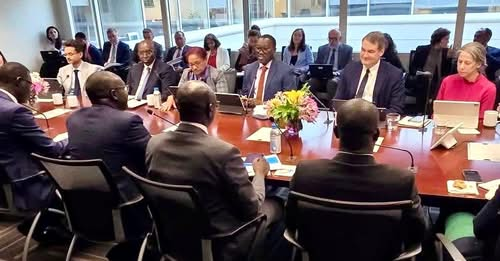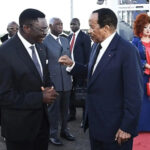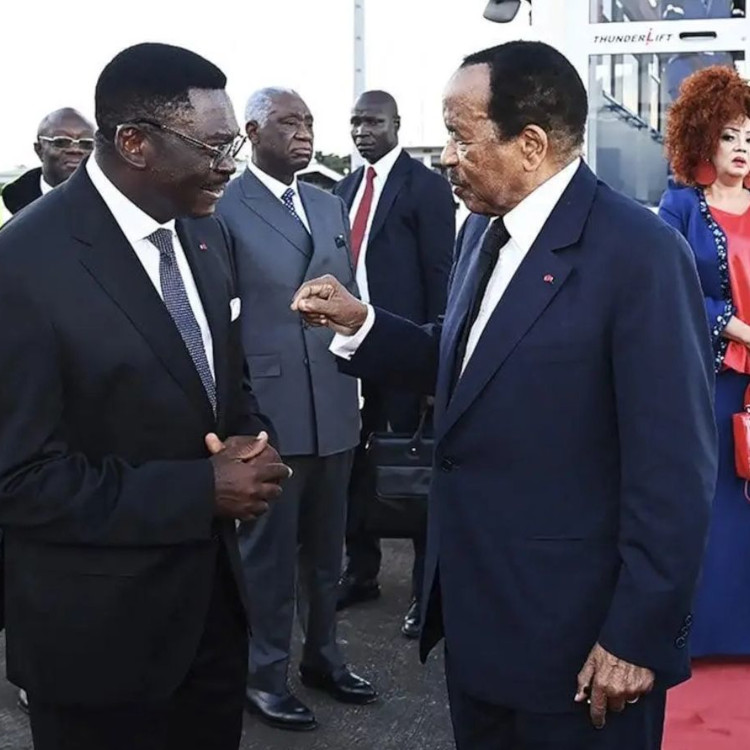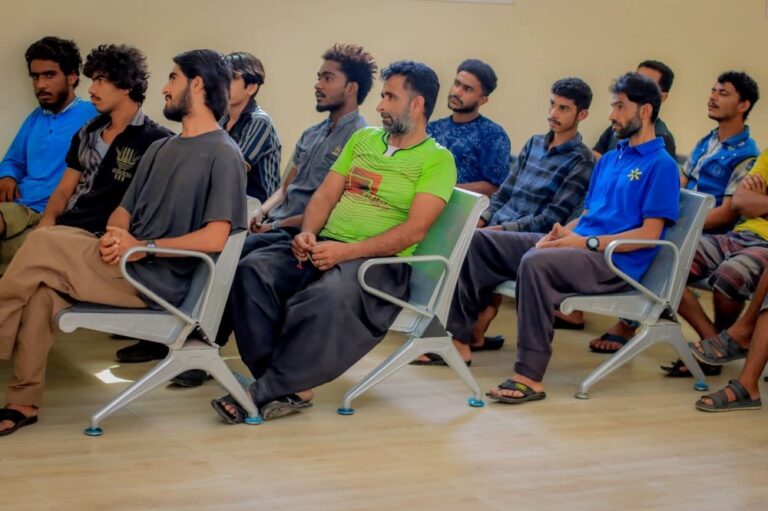
Author: Wol Mapal | Published: 11 hours ago
South Sudan Delegation in Washington D.C, United States for the World Bank Group and IMF Annual Meetings.
Courtesy: Bank of South Sudan.
South Sudan now ranks among the top debtor nations to the International Monetary Fund (IMF), with an outstanding balance of US$246 million in Special Drawing Rights (SDRs), according to newly released IMF data tracking global credit obligations as reported by Al Jazeera.
The figure represents the full extent of South Sudan’s quota and current borrowings, signalling that the country has drawn beyond its standard allocation.
The IMF report places South Sudan 50th out of at least 86 countries that collectively owe over US$162 billion to the global lender.
This mid-tier ranking underscores the country’s increasing reliance on IMF support amid persistent economic and political instability.
The outstanding debt includes both disbursed funds and repayment obligations, positioning South Sudan in a sensitive spot where future borrowing could be subject to tighter scrutiny and policy conditions.
Countries with high IMF debt burdens often face stringent economic reforms and austerity measures as part of continued financial support.
South Sudan’s growing liability comes at a time of deep economic strain.
Last week, the World Bank ranked the South Sudan Pound among the weakest currencies in Africa, noting a 10% drop in value this year alone.
The decline was attributed to reduced oil exports following damage to critical pipeline infrastructure amid ongoing conflict in neighbouring Sudan.
The report, Africa’s Pulse: Pathways to Job Creation in Africa, flagged South Sudan’s shrinking currency alongside the Ethiopian Birr, citing inflation, low revenues, and conflict-related disruptions as key drivers of economic instability.
With debt service obligations mounting, analysts warn that South Sudan must balance development goals with IMF-imposed conditions while avoiding default.
Maintaining good standing with the IMF remains crucial for unlocking future funding, technical support, and access to concessional lending from other global institutions.
Currently, a high-level delegation from South Sudan, comprised of officials from the Bank of South Sudan and the Ministry of Finance, is in the US, discussing with the World Bank on a potential partnership.












